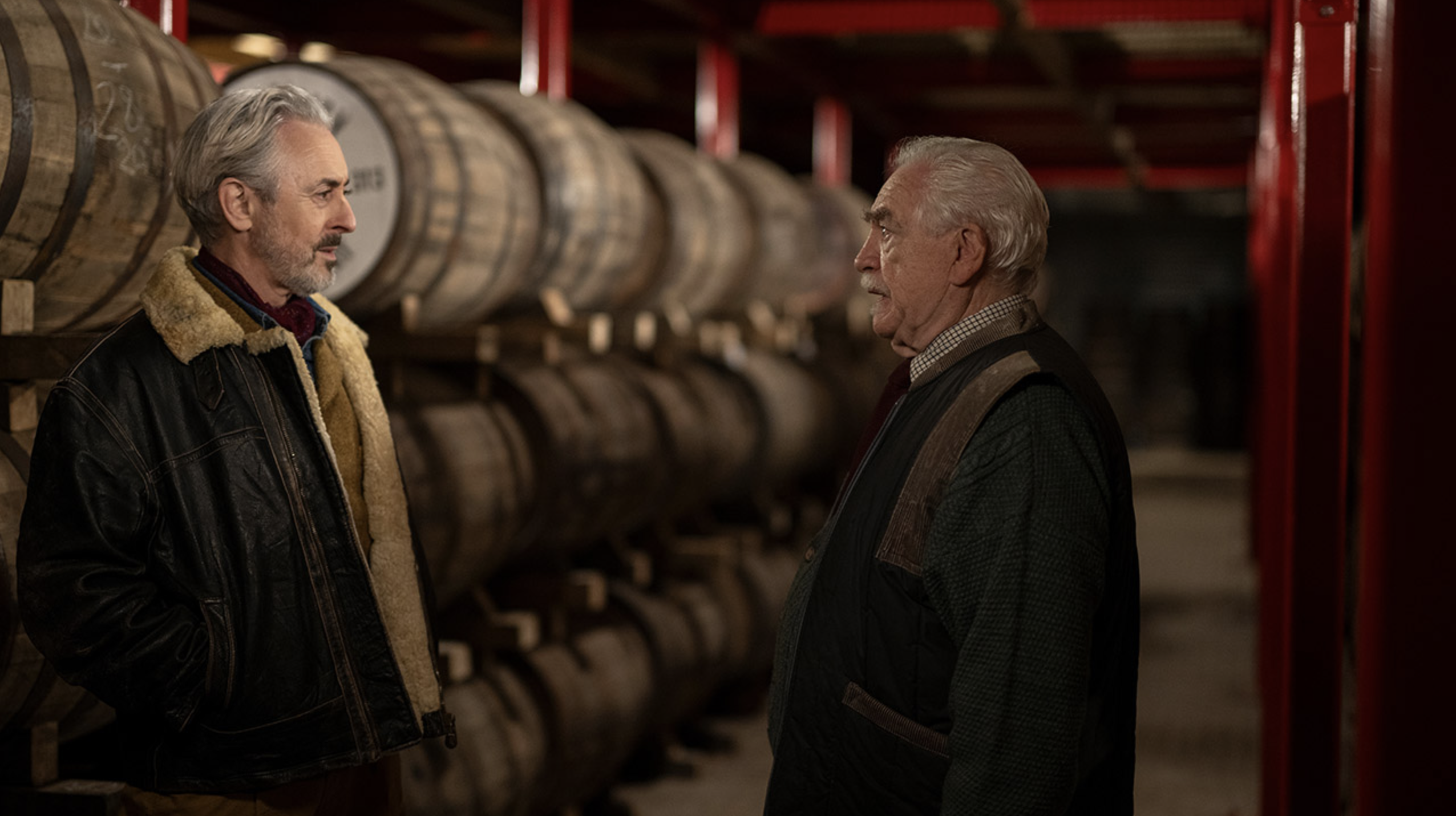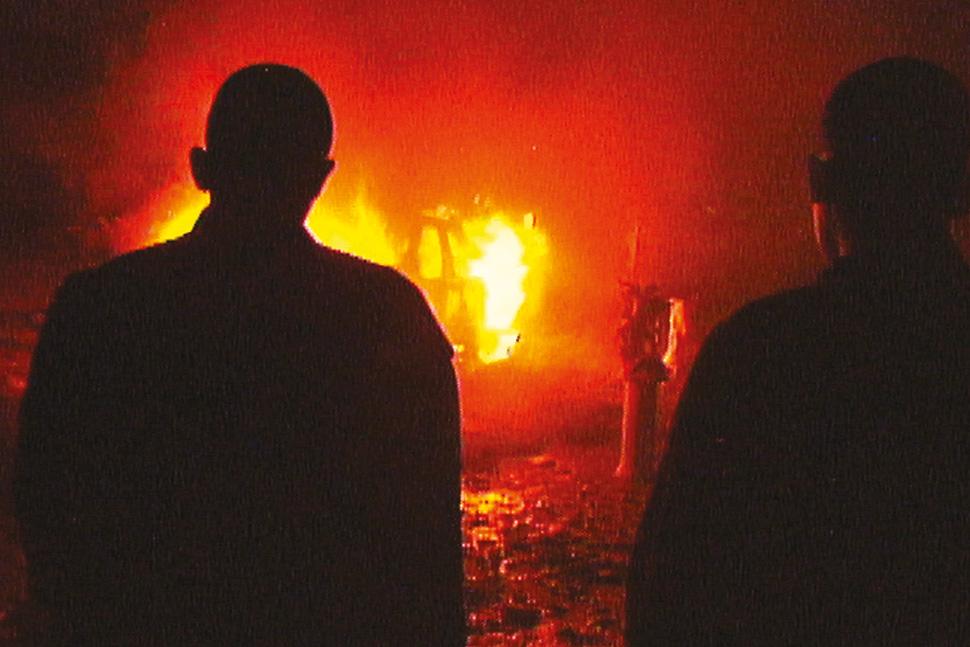There are only so many ways to hide a body, and there are only so many ways a movie like “Adulthood” turns out. Alex Winter’s amusing but slight film is a wacky romp about intergenerational trauma and cycles of abuse, though that’s pretty obvious from any given promotional image. As crazy as the movie purports to be, there’s never an unexpected moment. Thankfully, this turns out to be less of a problem than it should be.
“Adulthood” follows Noah and Megan Robles, two siblings whose mother has been left unable to speak after a stroke. While looking through the basement of their childhood home, they notice a leak in the water heater and a terrible smell. Their investigation leads them to the rotting corpse of their old neighbor Patty Metzger (a great name for a character whose moniker will hang over the rest of the film), who disappeared years ago. Instead of calling it into the police, they decide, in order to protect their family’s reputation and finances, to dump the body in a quarry. Of course, the pair’s attempts to bury the past only cascade into further collateral damage and ethical compromise.
Over the past 20 years of Black List darlings and Edgar Wright rip-offs, the American film industry has established a new archetype of cinema filled with quippy antiheroes, gory allegories for domestic strife, and character actors rattling off reference humor. The last few years this have seen this subcategory exchange its trendiness for a position as a legitimate niche market with the lower-tier of silly genre programmers. In 2025, a movie like “Adulthood” — i.e., a Whedon-esque morality play where one of the characters wears an Alamo Drafthouse shirt — is no longer cool or remotely notable. It is the standard deviation of every movie to play the Midnight section of a festival. But I like the Midnight section, and I found the movie to be a totally amiable way to spend 97 minutes.
Much of this hinges on a single load-bearing creative decision, one that becomes delightfully obvious only a few scenes in. Unlike similar stories, wherein characters often recoil at the notion of replicating the faults of their parents, the Robles are maniacally insistent that they must, at any cost to their well-being or the lives of others, follow in their parents’ footsteps. It is their duty to protect their mother’s legacy. They barrel recklessly past several oppurtunities to free themselves from the consequences of their own actions out of a stubborn devotion to their own toxicity. This approach is way more fun than the alternative, and gives far more room to explore questions of familial responsibility and the difference between care and self-preservation.
Such thematic complications present themselves, though in a confounding order, with unreliable consistency. Nearly half the film focuses on the extortion effort of the mother’s nurse (Billie Lourd). Her motivations, as someone who resents being dehumanized by those who pay her to do what she believes is a child’s duty of care, are a worthy inclusion, but her scenes feel like a slack waste of time in a story that demands a certain level of propulsion. Anthony Carrigan’s Bodie, the unpredictable cousin brought in by Noah to intimidate her, is similarly leveraged disproportionately. He lays bare the hypocrisy of the siblings’ insistence that they are acting out of some familial obligation and not outright selfishness. But this would perhaps be better highlighted by the character played by Winter himself. As Patty’s vagrant son, he delivers a heartbreaking and immediately commanding performance. Unfortunately, he has a total of about 180 seconds of screentime, the perfect foil to the sibling’s relationship is bizarrely abandoned.
The other performances are uneven, though I’m not sure how much of that is the script and how much is Winter’s direction. On one side is Gad, who fares shockingly well. Noah is a debt-addled, nerdy middle-aged who feels totally emasculated by his inability to get a project off the ground. As someone who has never been swayed by Gad’s particular brand of obnoxiously chipper humor, Noah’s depressive snark finds him in a much more comfortable register. He takes an insufferable caricature and turns it into a convincingly normal guy, even amidst all the hijinx and bloodshed. Scoledeno, however, is ill-served by a script that gives her plenty of detail but no depth. In addition to covering up a murder or six, Megan obsessively monitors her diabetic son’s glucose levels and finds herself stuck at the bad end of a multi-level marketing scheme. Scoledeno is visibly distressed, but Megan’s motivations are frustratingly indecipherible until she finally explains herself in voice-over.
All of this is perhaps explained by the core flaw in “Adulthood”’s construction: every arc is defined by if and when someone chooses to lash out in violence, but said violence is always irrational and inertly dramatized. Carrigan is, as always, a game performer. But Bodie, with his room full of swords and adult braces, is the kind of wacky force that requires a clarity of vision and Winter isn’t up to the task. The ending is not a twist, but it does backfill psychological information about the nature of the sibling dynamic that would have worked infinitely better if Galvn had found a way to seed these tensions sooner, or Winter a way to dredge them up via performance or mise-en-scene. Despite the premise, the movie is without a clear genre. It is not scary, it is not exciting, I do not even know if I would call it a comedy.
Yet I thoroughly enjoyed my time watching “Adulthood.” Whatever you call this type of movie, I find it endearing. I think its snarky faux-nihilism is cute and brings enough energy to the proceedings to paper over its dramatic lurches. I like the eagerness with which every idiosyncratic bit of set design and every minor twist is presented. I like sensing that someone on-screen is about to commit manslaughter and then swear, the way you can tell a rom-com heroine is about to trip by the way she carries a stack of papers.
I like movies like “Adulthood.” There are plenty of better films just like it. But there are plenty of worse ones, too. Plus, this one doesn’t have a single annoying needle drop. That has to count for something!
Grade: C
“Adulthood” premiered at the 2025 Toronto International Film Festival. It is currently seeking U.S. distribution
Want to stay up to date on IndieWire’s film reviews and critical thoughts? Subscribe here to our newly launched newsletter, In Review by David Ehrlich, in which our Chief Film Critic and Head Reviews Editor rounds up the best new reviews and streaming picks along with some exclusive musings — all only available to subscribers.



